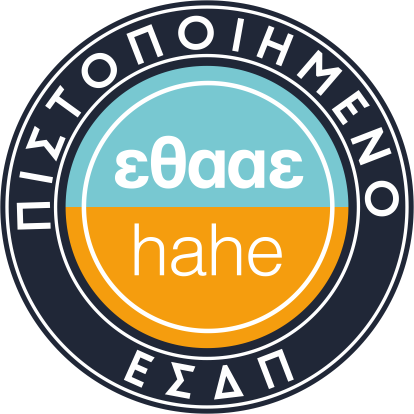Ημερολόγιο Εκδηλώσεων
19
Ιουν
Κατηγορία:
Παρουσίαση Μεταπτυχιακής Εργασίας
ΜΗΧΟΠ
 Μ3 - Κτίριο ΜΗΧΟΠ, Μ3.003
Μ3 - Κτίριο ΜΗΧΟΠ, Μ3.003 19/06/2017 11:00 - 12:00
19/06/2017 11:00 - 12:00Περιγραφή:
ΠΟΛΥΤΕΧΝΕΙΟ ΚΡΗΤΗΣ Σχολή Μηχανικών Ορυκτών Πόρων - ΠΜΣ Μηχανική Πετρελαίου Εξεταζόμενη μεταπτυχιακή φοιτήτρια: Χριστίνα Αργυροπούλου Θέμα Μεταπτυχιακής Εργασίας: «Heavy and extra heavy oils: Midstream processes and transportation» Τριμελής Εξεταστική Επιτροπή: Καθ. Βαρότσης Νικόλαος (επιβλέπων) Καθ. Πασαδάκης Νικόλαος Δρ. Μαρινάκης Δημήτριος Περίληψη The gradually growing energy demands have created a large interest towards the vast unconventional oil reserves that include heavy oils, extra heavy oils and bitumens, the exploitation of which is particularly challenging. These hydrocarbons exhibit high Specific Gravity, high viscosity, low mobility and increased content in asphaltenes, resins and N, S, O heteroatoms. This thesis is focused on the exploitation of heavy and extra heavy oils that have ˚API gravity coarsely from 20 to below of 10 and a viscosity between 100 and 10.000 cP as well as on the implemented or emerging techniques for their recovery, surface processing and transportation. The main characteristics of heavy and extra heavy oils are presented and analyzed with respect to the oil properties that affect their flowability during production. The detrimental effect of asphaltene, wax and scale precipitation, the role of naphthenates and naphthenic acids, the formation of stable emulsions and the foamy and slug flow tendencies during the production of heavy/viscous oils are also covered. The recovery methods used for the extraction of heavy and extra heavy oils are presented. Special reference is made in enhanced oil recovery methods including both thermal and non-thermal EOR techniques. The oil treatment is described in detail with the available options which include mechanical, thermal, chemical and electrostatic treatment or, more often, a combination of these. Electrostatic treatment is especially highlighted due to the variety of applications in dehydration and desalting, the energy efficiency and the ability to reduce the dosage on chemical demulsifiers. Additionally, the advances attained in the past fifteen years have allowed the use of the electrostatic separation systems in first-stage separators or pipeline segments. Finally, a review of the available technologies for pipeline transportation of heavy and extra heavy crude oils is conducted. The review is based on viscosity and friction reduction options as well as on the in situ and partial upgrading on site. The fundamentals of mechanical separation, as well as a number of case studies are cited in the appendices.
ΠΟΛΥΤΕΧΝΕΙΟ ΚΡΗΤΗΣ Σχολή Μηχανικών Ορυκτών Πόρων - ΠΜΣ Μηχανική Πετρελαίου Εξεταζόμενη μεταπτυχιακή φοιτήτρια: Χριστίνα Αργυροπούλου Θέμα Μεταπτυχιακής Εργασίας: «Heavy and extra heavy oils: Midstream processes and transportation» Τριμελής Εξεταστική Επιτροπή: Καθ. Βαρότσης Νικόλαος (επιβλέπων) Καθ. Πασαδάκης Νικόλαος Δρ. Μαρινάκης Δημήτριος Περίληψη The gradually growing energy demands have created a large interest towards the vast unconventional oil reserves that include heavy oils, extra heavy oils and bitumens, the exploitation of which is particularly challenging. These hydrocarbons exhibit high Specific Gravity, high viscosity, low mobility and increased content in asphaltenes, resins and N, S, O heteroatoms. This thesis is focused on the exploitation of heavy and extra heavy oils that have ˚API gravity coarsely from 20 to below of 10 and a viscosity between 100 and 10.000 cP as well as on the implemented or emerging techniques for their recovery, surface processing and transportation. The main characteristics of heavy and extra heavy oils are presented and analyzed with respect to the oil properties that affect their flowability during production. The detrimental effect of asphaltene, wax and scale precipitation, the role of naphthenates and naphthenic acids, the formation of stable emulsions and the foamy and slug flow tendencies during the production of heavy/viscous oils are also covered. The recovery methods used for the extraction of heavy and extra heavy oils are presented. Special reference is made in enhanced oil recovery methods including both thermal and non-thermal EOR techniques. The oil treatment is described in detail with the available options which include mechanical, thermal, chemical and electrostatic treatment or, more often, a combination of these. Electrostatic treatment is especially highlighted due to the variety of applications in dehydration and desalting, the energy efficiency and the ability to reduce the dosage on chemical demulsifiers. Additionally, the advances attained in the past fifteen years have allowed the use of the electrostatic separation systems in first-stage separators or pipeline segments. Finally, a review of the available technologies for pipeline transportation of heavy and extra heavy crude oils is conducted. The review is based on viscosity and friction reduction options as well as on the in situ and partial upgrading on site. The fundamentals of mechanical separation, as well as a number of case studies are cited in the appendices.













